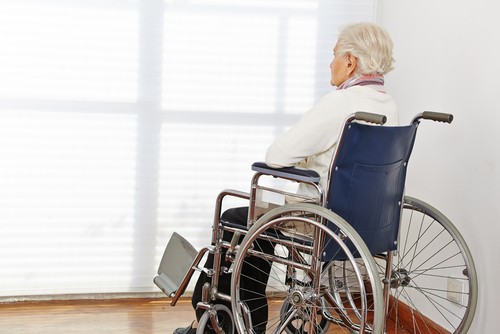
As the population ages, the demand for nursing home facilities in Florida has risen substantially. Families often entrust the care of their elderly loved ones to these institutions, expecting that their needs will be met with compassion and professionalism. However, not all nursing homes live up to these expectations, and behind closed doors, a darker reality may unfold: patient neglect. This article sheds light on the issue of patient neglect in Florida nursing homes, explores the difference between neglect and abuse, highlights common complaints, provides warning signs, and offers guidance on what to do if your loved one becomes a victim of nursing home abuse.
Top Nursing Home Abuse Complaints:
Nursing home abuse complaints can vary in nature, but some of the most prevalent issues reported in Florida nursing homes include:
1. Negligent Supervision: Lack of adequate staff or inadequate monitoring of patients can result in accidents, falls, and other preventable injuries.
2. Medical Neglect: Failure to provide essential medical attention, administer prescribed medications, or address health concerns in a timely manner can have severe consequences.
3. Emotional Neglect: Disregarding the emotional well-being of residents, such as isolating them from social activities or ignoring their emotional needs, can lead to loneliness and depression.
4. Personal Hygiene Neglect: Neglecting to assist residents with personal hygiene tasks like bathing, grooming, and changing clothes can lead to health issues and a diminished quality of life.
5. Financial Exploitation: Unscrupulous individuals may exploit vulnerable residents by manipulating them into handing over money, property, or valuables.
6. Physical Abuse: Infliction of pain, injury, or impairment through physical force or inappropriate use of restraints.
Examples of Nursing Home Neglect:
- Malnutrition and Dehydration: Failure to provide adequate meals and hydration can result in malnutrition, weight loss, weakness, and other health complications.
- Pressure Sores (Bedsores): Prolonged pressure on specific body parts due to inadequate repositioning can cause painful pressure sores, which may become infected if not properly treated.
- Unsanitary Living Conditions: Poor sanitation and living conditions can lead to the spread of infections and illness among residents.
- Medication Errors: Staff negligence in administering medications as prescribed can result in adverse reactions or exacerbate existing health issues.
- Inadequate Fall Prevention: Failing to implement proper fall prevention measures can lead to serious injuries, such as fractures or head trauma.
Neglect vs. Abuse:
While neglect and abuse share similarities, they differ in their intentions and actions:
- Neglect: Neglect is characterized by the failure to meet the basic needs of residents, whether intentionally or unintentionally. It can result from understaffing, inadequate training, or indifference to the well-being of residents.
- Abuse: Abuse involves intentional harm or mistreatment inflicted upon a resident, which can be physical, emotional, sexual, or financial in nature. It is a deliberate act with the intention of causing harm or distress.
Examples of Nursing Home Abuse:
1. Physical Abuse: Inflicting physical harm, such as hitting, pushing, using excessive force against a resident, or restraining residents, constitutes physical abuse.
2. Emotional Abuse: Verbally insulting, humiliating, or threatening residents to cause emotional distress is considered emotional abuse.
3. Sexual Abuse: Engaging in any non-consensual sexual activity with a resident or inappropriate behavior towards a resident is an appalling form of abuse.
4. Financial Abuse: Illegally obtaining or misusing a resident's funds, property, or assets for personal gain, coercing them into signing documents, or stealing their money or valuables is financial abuse.
5. Isolation: Purposefully isolating residents from their families and friends to control or manipulate them emotionally is a form of abuse.
Warning Signs of Nursing Home Neglect or Abuse:
Identifying potential signs of neglect or abuse is crucial to ensuring the well-being of your loved ones. Some warning signs include:
- Physical Signs: Unexplained injuries, bruises, cuts, burns, or signs of restraint
- Emotional Signs: Unusual or sudden changes in behavior, withdrawal, fear, signs of anxiety and depression
- Environmental Red Flags: Overcrowded or unsanitary living conditions in the facility
- Unresponsive Staff: Lack of communication or transparency from nursing home staff
- Poor Hygiene: Unclean living conditions, strong odors, and unkempt appearance
- Malnutrition: Weight loss, dehydration, and signs of inadequate nutrition
- Unusual Financial Activity: Sudden changes in financial assets, missing possessions, or unauthorized transactions
What Should I Do If My Loved One Is the Victim of Nursing Home Abuse?
If you suspect that your loved one is experiencing nursing home abuse or neglect, take immediate action:
1. Ensure Their Safety: If your loved one is in immediate danger, remove them from the facility and seek medical attention if necessary.
2. Document Everything: Keep detailed records of any injuries, conversations with staff, and any suspicious incidents.
3. Report the Abuse: Contact the Florida Department of Elder Affairs Abuse Hotline and file a complaint.
4. Seek Legal Counsel: Consult an experienced nursing home abuse attorney to protect your loved one's rights and pursue justice.
5. Find a Safer Environment: Research and choose a reputable and caring nursing home that prioritizes its residents' well-being.
Key Takeaway:
Patient neglect in Florida nursing homes is a concerning issue that demands attention and action. By understanding the differences between neglect and abuse, recognizing warning signs, and taking prompt action when abuse is suspected, we can protect our vulnerable elderly population and hold negligent facilities accountable. If you suspect your loved one is a victim of nursing home abuse, remember that legal resources and support are available to help you pursue justice and ensure their safety and well-being.
Contact Domnick Cunningham & Yaffa Today for a Free Consultation About Your Nursing Home Abuse Case
At Domnick Cunningham & Yaffa, we are more than just a law firm - we are passionate advocates for justice and the rights of those who have been wronged. With a deep commitment to serving the community, our experienced team of attorneys specializes in fighting for victims of nursing home abuse and neglect.
When it comes to protecting your loved ones and seeking justice for their suffering, experience matters. Our firm boasts a proven track record of holding negligent nursing homes accountable and securing substantial compensation for our clients. We understand the pain and emotional toll that nursing home abuse can inflict on families, and we are here to stand by your side, providing compassionate support throughout the legal process.
Our dedication to our clients goes beyond the courtroom. We believe in open communication, transparency, and personalized attention for every case we handle. With Domnick Cunningham & Yaffa, you can trust that your loved one's well-being is in capable hands.
Contact us today for a free consultation, and let us help you fight for the justice your loved one deserves. Together, we can make a difference and bring about positive change in the nursing home industry. Your loved ones deserve to be treated with dignity and respect - and we won't rest until their rights are fully protected.

